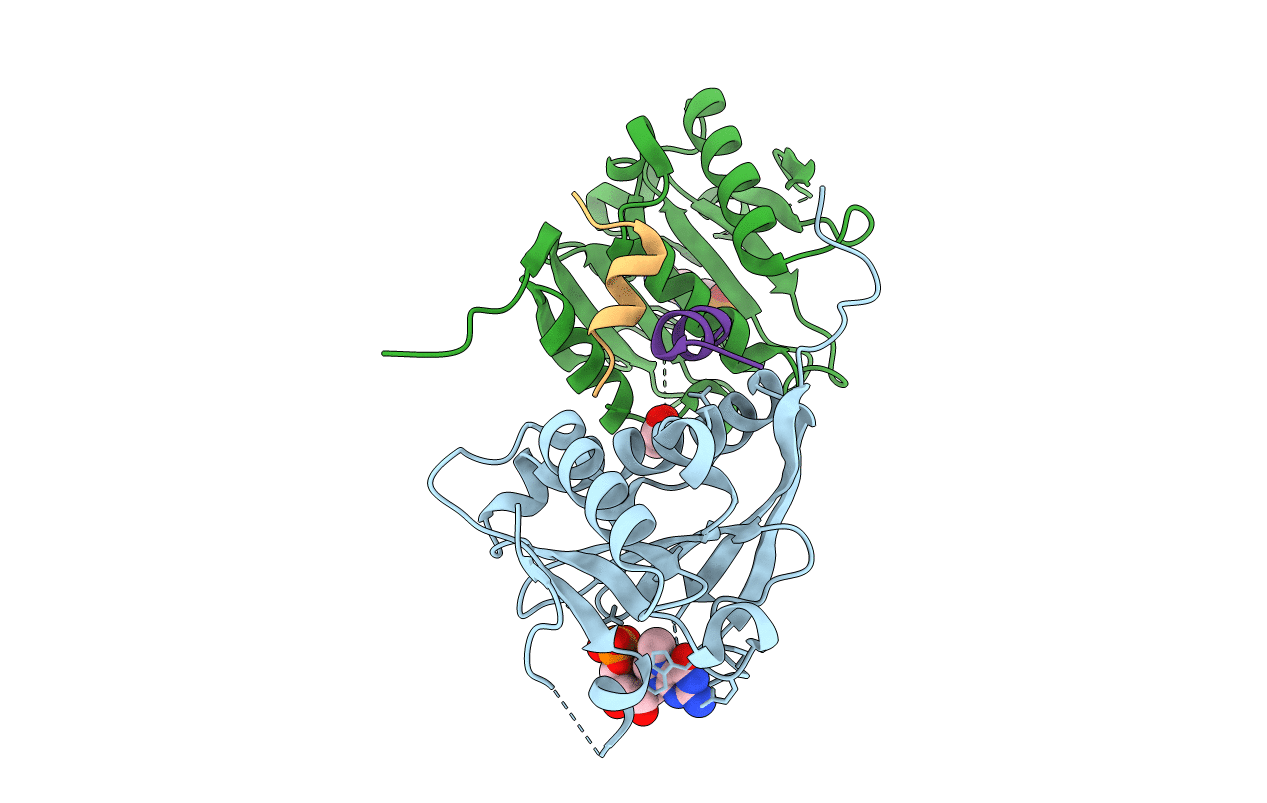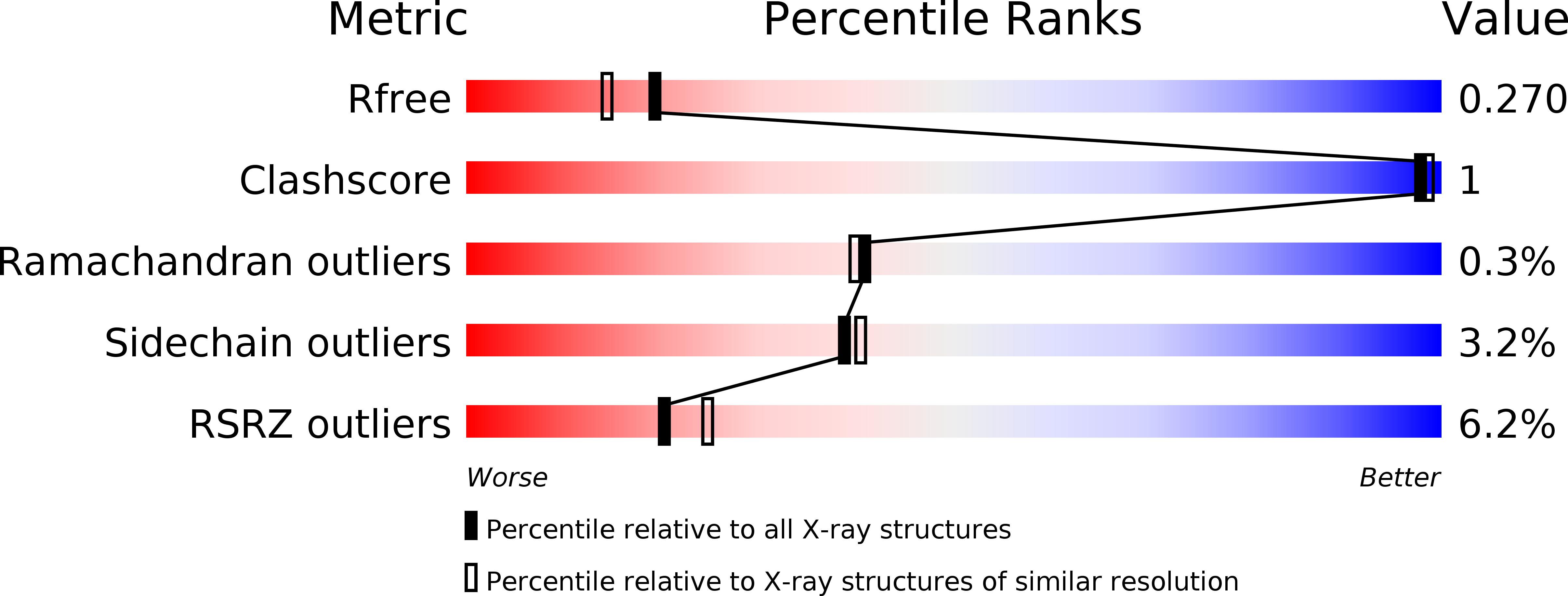
Deposition Date
2018-03-23
Release Date
2019-02-20
Last Version Date
2024-10-23
Entry Detail
PDB ID:
5ZK7
Keywords:
Title:
Stapled-peptides tailored against initiation of translation
Biological Source:
Source Organism(s):
Homo sapiens (Taxon ID: 9606)
Expression System(s):
Method Details:
Experimental Method:
Resolution:
2.12 Å
R-Value Free:
0.26
R-Value Work:
0.21
R-Value Observed:
0.21
Space Group:
P 21 21 21


